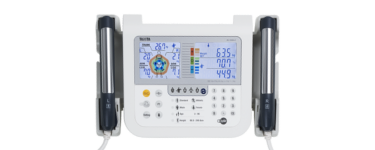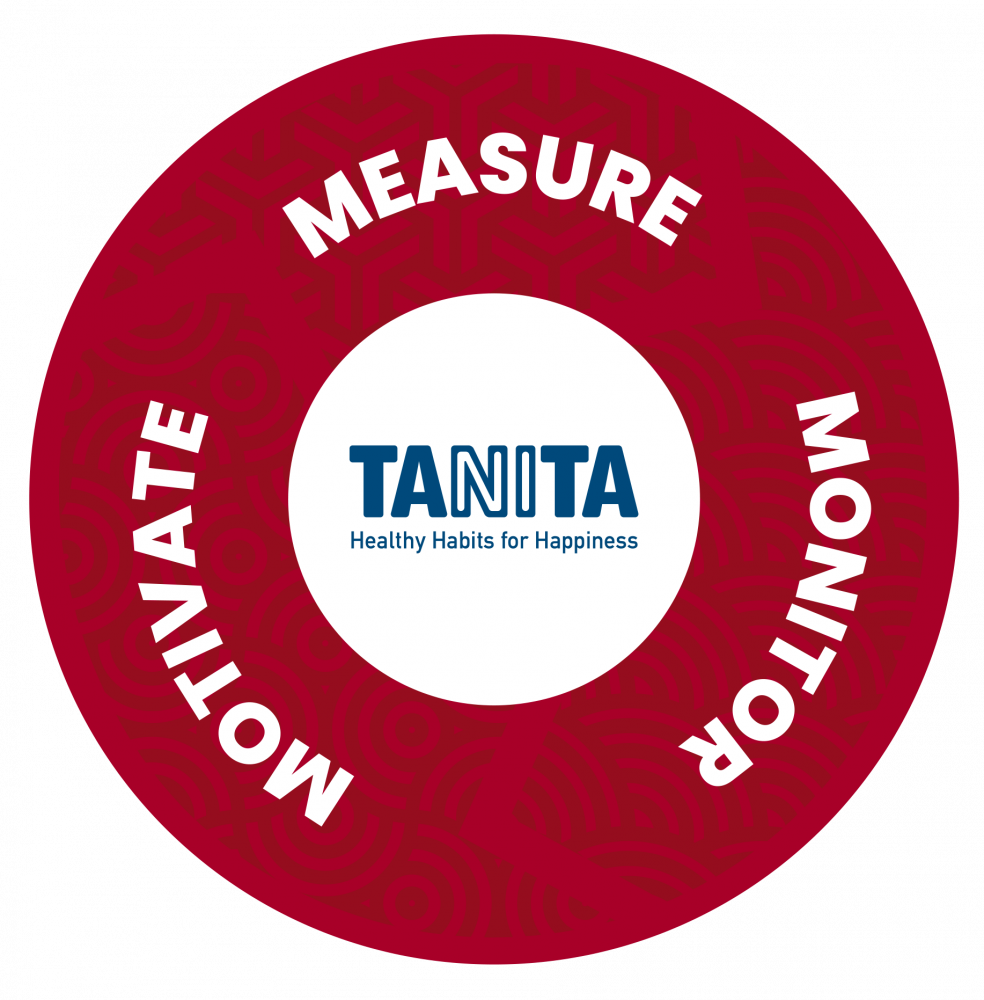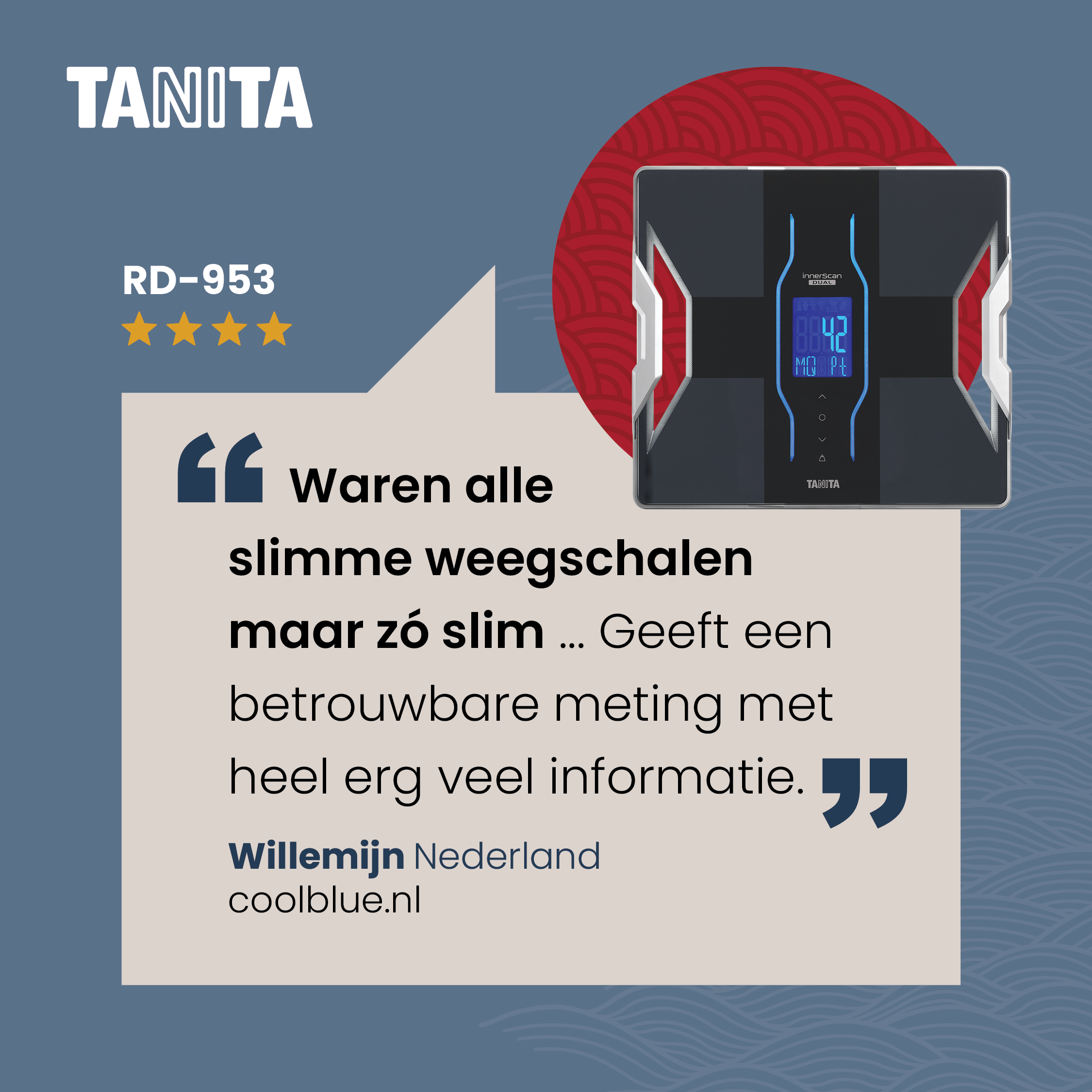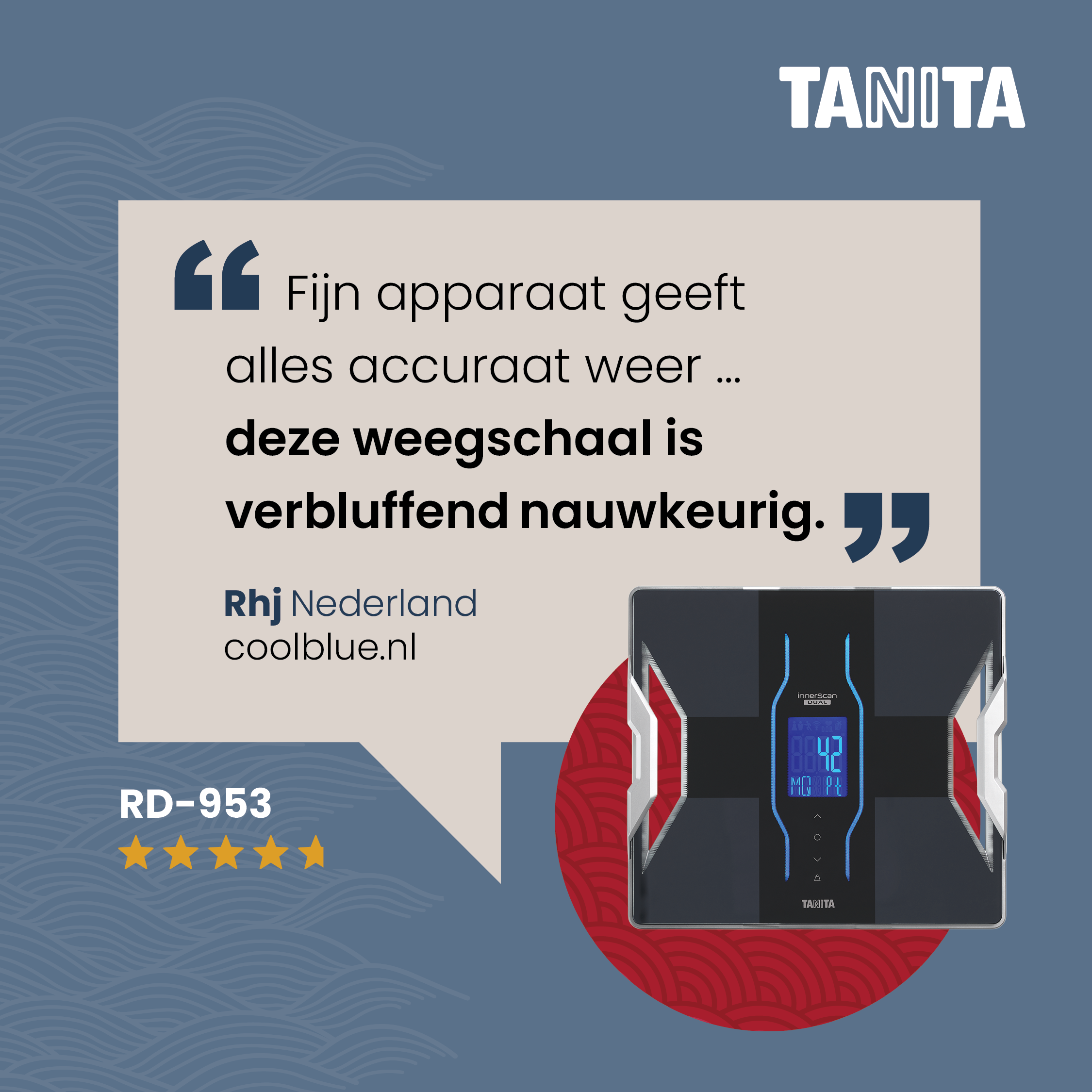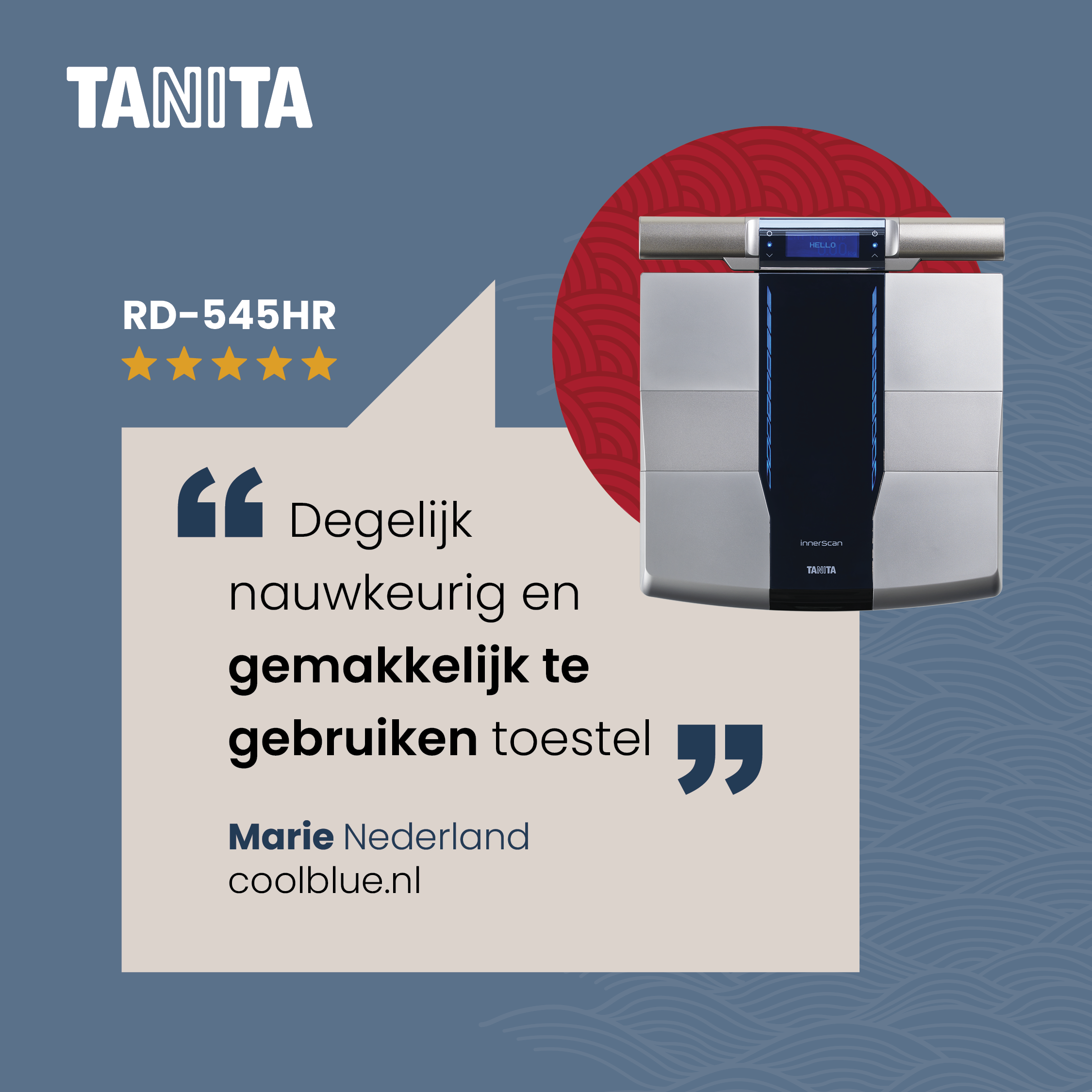Transform Your Practice with Precision and Patient care
TANITA Body Composition Analyzers (BIA) provide dietitians and nutritionists with precise, actionable insights into their patients' health, going far beyond traditional metrics like BMI and weight. Whether you’re working with underweight or overweight individuals, those recovering from sarcopenia or diabetics, professional athletes, or patients of any age, TANITA BIA helps you tailor your approach to each patient's unique needs.
By measuring key factors such as muscle mass, body fat percentage, visceral fat, bone density, and metabolic age, TANITA BIA enables you to craft more effective, individualized treatment plans in less time. This level of detailed understanding allows for targeted interventions, whether your patient needs to build muscle, lose fat, or maintain their current condition.
With TANITA BIA, you can quickly assess progress, adjust plans accordingly, and provide your patients with tangible, specific goals that are realistic and will keep them motivated. This not only enhances the effectiveness of your treatments but also improves patient satisfaction and outcomes, ensuring you deliver the best possible care to your diverse patient population.
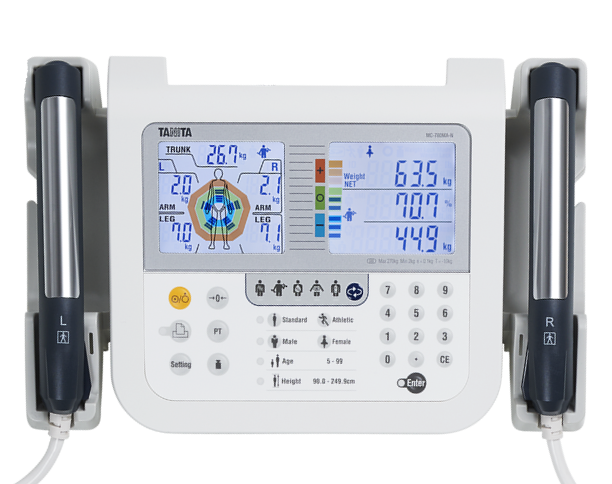

Go beyond weight and BMI
Fat mass (segmental)
Fat free mass
Muscle Mass (segmental)
Total Body Water
ECW
ICW
Reviewed with a 9,3*
Japanese Technology
5 year warranty
world no. 1 for new health insights
Why body composition for children?
-
Early Detection of Health Issues, such as obesity or malnutrition. By regularly assessing their body composition, you can identify any abnormalities or imbalances in muscle mass, fat distribution, or overall body weight. This early detection enables timely interventions and appropriate treatments, minimising the risk of long-term health complications.
-
Personalised Nutrition and Exercise Guidance: Body composition monitoring provides valuable insights into a child's specific nutritional needs and physical activity requirements. By analysing factors like muscle mass, body fat percentage, and body water, healthcare providers can develop personalised nutrition and exercise plans tailored to the child's unique needs. This approach promotes healthy growth and development, helps maintain an optimal weight, and reduces the risk of chronic conditions such as diabetes and cardiovascular diseases.
-
Motivation and Accountability: Monitoring body composition can serve as a motivational tool for children and their families. Tracking changes in body composition over time, such as improvements in muscle mass or reduction in body fat, can provide visible evidence of progress and serve as a source of encouragement. Additionally, regular body composition assessments create a sense of accountability, promoting adherence to healthy habits and lifestyle modifications, leading to better overall health outcomes.
As body composition monitoring should be conducted in a supportive and sensitive manner, ensuring the child's well-being and privacy, the TANITA MC-780MA offers the option of turning the monitor screen facing the professional when the child is being measured.
Relevant Applications in Dietetics
Weight Management
The TANITA MC780-MA is a valuable tool for dietitians in monitoring changes in body composition, whether for weight loss or gain(1)(3). It ensures that weight changes come from the right sources, such as fat reduction or healthy muscle gain, rather than undesirable muscle loss. This data aids in creating effective weight management programs tailored to individual needs. The technology also supports reducing the risk of diabetes and musculoskeletal conditions while enhancing clinical decision-making and improving patient outcomes.
Clinical Nutrition
The TANITA MC780-MA aids in diagnosing and monitoring conditions such as sarcopenia, cachexia, and malnutrition in clinical settings, e.g. in the field of Oncology(4) and Rehabilitation(5). It provides critical data for developing nutrition plans that support overall health and recovery. This includes identifying patients at risk of deterioration due to sarcopenia/ malnourishment and personalising interventions to improve nutritional status and physical fitness.
Sports Nutrition
In sports nutrition, the TANITA MC-780MA provides insights into muscle mass and hydration levels, enabling dietitians and nutritionists to optimise athletes' performance and recovery through tailored nutrition plans that support muscle maintenance and growth. It helps monitor and preserve healthy body fluid levels and detect post-surgical issues, enhancing overall athletic performance and recovery.
Geriatric Nutrtition
The TANITA MC780-MA proves to be a useful tool in geriatric nutrition(6) (7), where maintaining muscle mass and preventing sarcopenia is critical. It helps dietitians assess the nutritional needs of older adults and create plans to improve their overall health and mobility. Measuring and monitoring lean mass supports reductions in mortality rates, inpatient stays, and readmissions while improving quality of life and individual patient care.
Pediatric nutrition
With the prevalence of childhood overweight and obesity rising, early intervention is more critical than ever (WHO report). In pediatric nutrition, the TANITA MC780-MA supports the assessment of growth and development in children, as it is offering precise body composition analysis for individuals as of age 5(8)(9). By looking beyond weight and BMI, children and their caretakers can get a better understanding and more positive idea about their body. This makes the MC780-MA a trusted partner for tailored interventions in pediatric practices, ultimately improving long-term health outcomes for children.


Introducing the TANITA MC780-MA
Key benefits and applications for dietitians and nutritionists


Measure accurately for individual goal setting
Provides precise insights into personal body composition(1)(3), including muscle mass, fat mass, visceral fat, and water levels, enabling dietitians to set individualised health goals and aid in creating effective treatment plans.
Monitor progress quick and easy
Track individual progress over time, with easy data transfer and printing options for reviewing and adjusting strategies.
Motivate patients towards goal attainment
Showing individual progress over time on more aspects than just weight or BMI will motivate your patients to adhere to the program, resulting in higher goal attaintment.
Reviewed with a 9,3*
Japanese Technology
5 year warranty
world no. 1 for new health insights


The TANITA Promise: Accurate, Comprehensive Health Insights in less then one minute
Accuracy: 4C
Our professional Body Composition Monitors combine multifrequency BIA technology with our unique 4C method (the four compartments such as fat, water, protein, and mineral, are validated against the 4C methodology) thus ensuring clinical accuracy.
Easy to Use
TANITA BIA monitors start up instantly and deliver results within 20 seconds. The intuitive interface and clear result sheets allow you to integrate the technology into your practice with minimal training.
Quick Data Management
Equipped with USB, serial ports, and optional Bluetooth, TANITA devices facilitate seamless data management. Save results to an SD card and easily transfer to your PC, or can be printed directly. The use of our TANITA Pro Software allows you to analyse data for your total patient population.
Expanding the Frontiers of BIA
TANITA BIA trusted by Experts Worldwide
TANITA's accuracy has been extensively validated and reported in international medical journals. Ongoing research addresses key health issues such as childhood obesity and sarcopenia, keeping TANITA at the forefront of scientific advances.
TANITA Multi-Frequency Technology
By utilising bioelectrical impedance analysis across three to six frequencies, our BIA monitors deliver superior accuracy.
· Lower Frequencies: Assess impedance external to cell membranes.
· Higher Frequencies: Penetrate cell membranes, providing precise estimates of extracellular water (ECW), intracellular water (ICW), and Total Body Water (TBW).
TANITA 4C Method: The Gold Standard in Body Composition Measurement
Specialists consider the "4C method" as the gold standard, breaking the body into:
⋅ Fat
⋅ Minerals
⋅ Protein
⋅ Water
Developed by Professor Steven Heymsfield's team at Columbia University, this algorithm combines volume measurement, water content analysis, mass measurement, and the DXA method to ensure accuracy while minimizing the impact of individual body composition differences.
Extensive Biometric Data
Since 1992, TANITA has collected biometric data from over 15,000 global cases. This data aligns with demographic statistics, ensuring accurate and reliable measurements.


Medical Advisory Board
TANITA BIA-monitors have been extensively validated using various methods that assess body composition. With BIA technology, our monitors ensure accuracy, precision and scientific excellence. Supported by TANITA's Medical Advisory Board and continuous innovation, this device ensures you deliver the highest standard of care while enhancing your professional reputation.


Professor Steven Heymsfield Executive Director of Pennington Biomedical Research Center, Baton Rouge USA. Member of TANITA Medical Advisory Board
As a Medical Advisory Board member, I have consulted with and learned from TANITA engineers for over 20 years as they developed early prototypes that have now blossomed into advanced bioimpedance technologies that accurately quantify body composition. These developments are timely as a critical need exists to go beyond simple but inaccurate measures of body shape and composition (e.g., body mass index) when evaluating people with obesity, sarcopenia, and other chronic medical conditions and diseases.’


Professor Angelo Pietrobelli, M.D. Professor of Paediatrics Professor of Nutrition Paediatric Unit Department of Surgical Sciences, Dentistry, Gynaecology and Paediatrics, University of Verona, Verona, Italy Member of TANITA Medical Advisory Board
‘The 4-Compartment model is a gold standard method to assess body composition in many conditions such as over and under nutrition, hydration, obesity and sarcopenia.’
References
1.) Ballesteros-Pomar MD, González-Arnáiz E, Pintor-de-la Maza B, et al. Bioelectrical impedance analysis as an alternative to dual-energy x-ray absorptiometry in the assessment of fat mass and appendicular lean mass in patients with obesity. Nutrition. 2022;93:111442. link
2.) Baran R, Baran J, Leszczak J, Bejer A, Wyszyńska J. Sociodemographic and Socioeconomic Factors Influencing the Body Mass Composition of School-Age Children. International Journal of Environmental Research and Public Health. 2022;19(18):11261. link
3.) Verney J, Schwartz C, Amiche S, Pereira B, Thivel D. Comparisons of a Multi-Frequency Bioelectrical Impedance Analysis to the Dual-Energy X-Ray Absorptiometry Scan in Healthy Young Adults Depending on their Physical Activity Level. Journal of Human Kinetics. 2015;47(1):73-80.
4.) Palle, S. S., Møllehave, L. T., Taheri-Kadkhoda, Z., Johansen, S., Larsen, L., Hansen, J. W., Jensen, N. K. G., Elingaard, A. O., Møller, A. H., Larsen, K., & Andersen, J. R. (2016). Multi-frequency bioelectrical impedance analysis (BIA) compared to magnetic resonance imaging (MRI) for estimation of fat-free mass in colorectal cancer patients treated with chemotherapy. Clinical Nutrition ESPEN, 16, 8–15.
5.) Fujimoto K, Kazuhide Inage, Eguchi Y, et al. Dual-Energy X-ray Absorptiometry and Bioelectrical Impedance Analysis are Beneficial Tools for Measuring the Trunk Muscle Mass of Patients with Low Back Pain. Spine surgery and related research. 2019;3(4):335-341.
6.)Salimi H, Ohyama S, Terai H, et al. Trunk Muscle Mass Measured by Bioelectrical Impedance Analysis Reflecting the Cross-Sectional Area of the Paravertebral Muscles and Back Muscle Strength: A Cross-Sectional Analysis of a Prospective Cohort Study of Elderly Population. Journal of Clinical Medicine. 2021;10(6):1187.
7.)Yamada Y, Yamada M, Yoshida T, Miyachi M, Arai H. Validating muscle mass cutoffs of four international sarcopenia‐working groups in Japanese people using DXA and BIA. Journal of Cachexia, Sarcopenia and Muscle. 2021;12(4):1000-1010.
8.)Brener A, Peleg I, Rosenfeld T, et al. Beyond Body Mass Index - Body Composition Assessment by Bioimpedance in Routine Endocrine Practice. Endocrine Practice. 2021;27(5):419-425.
9.)Verney J, Metz L, Chaplais E, Cardenoux C, Pereira B, Thivel D. Bioelectrical impedance is an accurate method to assess body composition in obese but not severely obese adolescents. Nutrition Research. 2016;36(7):663-670.

